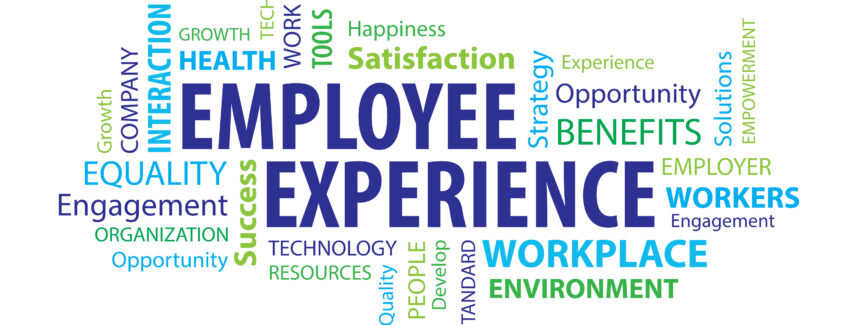 Dr. Relly Nadler: We’re always looking for those critical things that you could do a little more of or maybe a little bit less of for you to be your best. We are focusing, these days, on emotional brilliance. So, what are the few things that you can summon, that you can bring forward, so that in the moment you can be brilliant?
Dr. Relly Nadler: We’re always looking for those critical things that you could do a little more of or maybe a little bit less of for you to be your best. We are focusing, these days, on emotional brilliance. So, what are the few things that you can summon, that you can bring forward, so that in the moment you can be brilliant?
What we are looking at today is this idea of whether you are looking for a raise or praise. What’s the forecast for 2021?
So, Cathy and I want to be able to present some information for you that you can use in your organization and for your own advancement. This idea that we’re all still in the pandemic, as we know it’s raging, vaccines are being distributed, yet slowly. This new highly contagious strain of the virus is spreading worldwide. When we look at some of the research from organizations that Cathy and I utilized.
One is from the organization Indeed and they have interviewed over 319 employers about the COVID-19 impact. What we’ve noticed is more employees plan to add remote work options and increased empathy for workers and daily challenges. So, because we’ve gone through this your boss really knows more about what you can do and not do it. All told, these changes are here to stay. Employers think the future looks brighter.
So, with that, what does that mean for you? In fact, over one-fourth – 27% – plan to hire at a higher volume. So, some of the stuff that Cathy and I have seen – there’s going to be a little bit more hiring. About 20% anticipate hiring at the same level and only 10% predict that there may be some hiring freezes. Other research says that about 16% of firms across the US say they will not be giving financial raises.
So, a little bit of mixed results. There’s a lot of hope and excitement for what’s coming. But, for us, what does that mean for you? How do you qualify for a financial raise or do you just want to get more praise? What’s it like to be a top performer? What do you need to do?
That’s some of the things that we’re going to focus on.
So, Cathy, welcome.
 Dr. Cathy Greenberg: Thank you, Relly. I have been listening intently as you and I have been collecting research on what is going to happen to our workforce in 2021. In our new Emotional Brilliance Academy, we talk about many of the options that people have for getting a better handle on their emotions, and a better handle on their outlook for optimism. As executive coaches and professionals, this is going to be a focus for us going into 2021 because I think and, I hope you agree, that as we look at new research in a changing environment, covid or no covid, we are now in a place in our virtual work environment, in our – in most instances – permanent or forever home environment.
Dr. Cathy Greenberg: Thank you, Relly. I have been listening intently as you and I have been collecting research on what is going to happen to our workforce in 2021. In our new Emotional Brilliance Academy, we talk about many of the options that people have for getting a better handle on their emotions, and a better handle on their outlook for optimism. As executive coaches and professionals, this is going to be a focus for us going into 2021 because I think and, I hope you agree, that as we look at new research in a changing environment, covid or no covid, we are now in a place in our virtual work environment, in our – in most instances – permanent or forever home environment.
We are currently on the East Coast dealing with a big snowstorm and while the pandas at the DC Zoo are having a blast with this snow, many of us are learning how to cope. When we are not only dealing with a new work environment that may not change and our home environment with very few boundaries for living and working in that environment with our children and our loved ones; we’re finding that this subject especially that tremor of a 16% of work environments or we should say employers – 16% of firms are saying that they are not going to be giving across the board raises.
So, how do we deal with staying on board with our goals and our mission with the companies that we have chosen to hitch our star to? As a star performer, I’m sure many of us who were listening think, “Well, I have options.”
Well, obviously, many of us believe we do in our optimism for those options stays relatively high, above 60% actually, but the interesting data point here for us to follow is our own emotional intelligence. How are we going to prevent ourselves from derailing if in fact, we don’t get the raise we want? And, how can we make sure that if we are getting praise how can we go back within three to six months and get that, if you will, scheduled interview for a review back on the schedule so that we have another opportunity for discussing what we might get if it’s not a raise?
Today’s show is going to be really exciting and I think incredibly in-depth toward living a stress less and fear less life, which is our goal.
Other things we’re going to be announcing today, throughout the show, is our brand-new, seven-day, all-access, free membership for anybody who wants to try something new to improve their emotional intelligence. You can go to www.eblifebook.com/freetrial
So, Relly, let’s get into the meat of things, today.
Dr. Relly Nadler: Yeah, Cathy. Well, thanks and just to echo what you’re saying for our listeners; a lot of what you hear Cathy and I talk about; first you know we’ve been doing this for years and years – we won’t say how many years but we’ve been doing for quite a while – we have a lot of experience. Then, coming together and putting all this on to the emotional brilliance website is a way that you can tap into that.
But, if you like some of the things you hear, we would encourage you to go back to that.
Cathy, it’s interesting, right before this show that we do, I supervised coaches who are getting trained, and they presented cases. Organizations are all over the world and the one case that we actually heard just this last hour was exactly what we’re talking about today. Here is an individual who is not getting paid. They’re getting paid 15 to 20% less than they should and the conversation with their coach is; How do I ask for a raise? What do I do especially now with covid and cutbacks and everything is more extreme? Does the person come off as being disloyal; in spite of everything that’s going on, now you’re asking for a raise? That aspect.
So, as we talk about this, some of the good news that we know from the research is about 70% of employers predict business is going to grow in 2021. For all of us, I’m sure that’s good news and a relief in some way.
As you’re listening, if you’re one of these people thinking about the conversation you want to have with your boss; 90% of employers say workers pulled together to weather this covid crisis. So, we’ve all been through this and I think if you look back at how we’ve adapted and how we have quickly dealt with the pandemic; working at home, setting up an office, – may have been in your dining room and then now hopefully it’s a separate place where you know this is the way it’s going to be. There’s a lot of strength that people have demonstrated.
Cathy, there is one organization that I worked with that within five days 200 people who had been on site were all off-site – this is a really conservative organization where they’ve been doing the same thing, not necessarily an innovative company – in five days they got everybody off-site, had their computers set up, and phones. It would have taken them six months to do that if they had it as a change initiative before the pandemic. So, this pandemic has really pointed to what we’re capable of.
If you are one of these people and listening, you’ve made incredible changes that you can talk about. Your boss has seen this aspect of you. A lot of times, we call this adaptability, we may call it grit, that really rising to the occasion. So, somehow highlighting that in the conversation that you’re having with your boss.
You can listen to the entire interview above by clicking on the play button.

